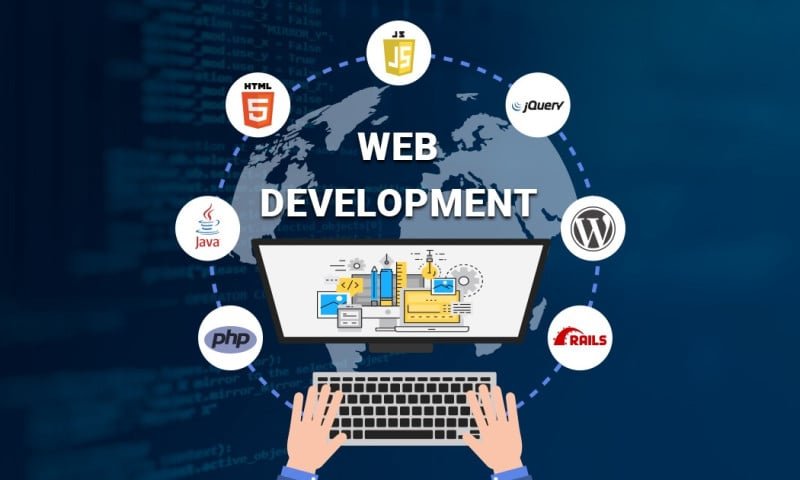In the realm of technology, few innovations have captured the world’s attention and imagination like blockchain. Originally introduced as the underlying technology for cryptocurrencies, particularly Bitcoin, blockchain has evolved into a transformative force with limitless potential. From finance to supply chain management, healthcare to governance, blockchain has shown promise in revolutionizing industries by offering transparency, security, and efficiency. In this blog, we will delve into the fascinating world of blockchain development, exploring its core principles, its diverse applications, and the future it holds.
I. Understanding Blockchain Technology: Blockchain can be defined as a decentralized, distributed ledger that records transactions across multiple computers or nodes. Each transaction, or block, is securely linked to the previous one, forming an unbroken chain of records. The key features that make blockchain stand out are:
- Decentralization: Unlike traditional systems where a central authority controls data, blockchain operates through a network of participants who collectively validate and store transactions. This decentralized structure enhances security, eliminates single points of failure, and reduces the risk of fraud.
- Transparency: Blockchain offers transparency by making all transactions and data visible to participants in the network. This transparency fosters trust, as it allows anyone to verify the authenticity and integrity of the recorded information.
- Security: The use of cryptographic algorithms ensures that transactions on the blockchain are tamper-proof and resistant to unauthorized changes. Once a transaction is recorded on the blockchain, it becomes virtually immutable, bolstering the overall security of the system.
II. Blockchain Development Platforms: Blockchain development involves creating decentralized applications (DApps) that leverage the underlying blockchain technology. Here are some of the prominent blockchain platforms that developers use to build innovative solutions:
- Ethereum: Ethereum is a popular blockchain platform that introduced smart contracts. Smart contracts are self-executing agreements with predefined rules and conditions that facilitate automated transactions. Ethereum’s programmable nature enables developers to build decentralized applications, powering a wide range of use cases such as decentralized finance (DeFi), non-fungible tokens (NFTs), and more.
- Hyperledger: Hyperledger is an open-source collaborative project hosted by the Linux Foundation. It provides a suite of blockchain tools and frameworks that enable developers to create enterprise-grade blockchain applications. Hyperledger Fabric, one of the frameworks, caters to business networks by emphasizing privacy, scalability, and modular architecture.
- Corda: Corda is a blockchain platform specifically designed for enterprise use cases. It focuses on privacy, data sharing, and interoperability between different organizations. Corda’s unique architecture allows for secure and efficient peer-to-peer transactions while maintaining confidentiality.
III. Applications of Blockchain Technology: The versatility of blockchain technology has led to its application in various industries. Let’s explore some of the exciting use cases:
- Finance and Banking: Blockchain has the potential to revolutionize the financial sector by providing secure, transparent, and efficient systems for payments, remittances, and asset tokenization. It eliminates intermediaries, reduces costs, and enables faster cross-border transactions.
- Supply Chain Management: Blockchain brings transparency and traceability to supply chains, allowing stakeholders to track and verify every step of the product journey. This enhances trust, reduces fraud, and ensures ethical sourcing, benefiting industries like food, pharmaceuticals, and luxury goods.
- Healthcare: Blockchain can improve healthcare data management by securely storing medical records, ensuring patient privacy, and facilitating seamless data sharing among healthcare providers. Additionally, it can aid in drug traceability, clinical trials, and combating counterfeit medicines.
- Identity Management: Blockchain offers a decentralized and secure approach to identity management, reducing identity theft and fraud. It enables individuals to have control over their personal data and selectively share it with authorized parties.
- Governance: Blockchain-based systems can enhance transparency in government processes, enabling secure voting, transparent procurement, and efficient public service delivery. It can also facilitate the establishment of digital identities for citizens.
IV. Challenges and Future Directions: While blockchain technology holds tremendous promise, it also faces challenges that need to be addressed for widespread adoption:
- Scalability: Current blockchain platforms often struggle with scalability, as the consensus mechanisms and data storage requirements impose limitations. Solutions like sharding, layer 2 protocols, and advancements in blockchain interoperability aim to overcome these challenges.
- Regulatory Frameworks: Blockchain operates across borders, challenging traditional regulatory frameworks. Governments are grappling with creating appropriate regulations that balance innovation, consumer protection, and security.
- Energy Consumption: The energy-intensive nature of blockchain, especially proof-of-work consensus mechanisms, has raised concerns about its environmental impact. The industry is actively exploring alternative consensus algorithms and energy-efficient approaches.
Looking ahead, the future of blockchain development holds immense potential. Advancements in areas like interoperability, privacy, and scalability will pave the way for broader adoption. Integrating blockchain with emerging technologies like artificial intelligence, the Internet of Things, and 5G will unlock novel applications and drive further innovation.
Conclusion: Blockchain development is a rapidly evolving field that has the power to reshape industries, enhance trust, and foster decentralized ecosystems. With its core principles of decentralization, transparency, and security, blockchain technology offers a transformative solution to many societal and business challenges. As developers continue to explore its potential, we can expect to witness groundbreaking applications that empower individuals, streamline processes, and shape the future of our interconnected world.





